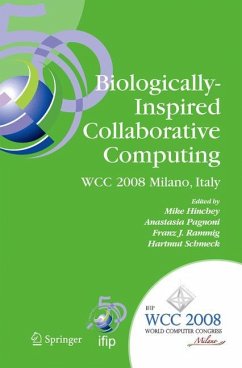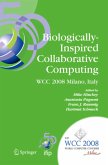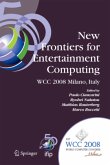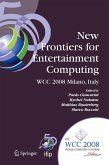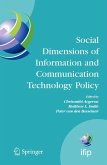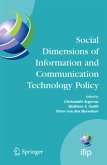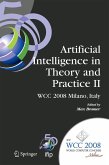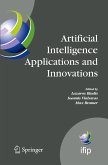This book constitutes the refereed proceedings of the Conference on Biologically-Inspired Computing, held in Italy on September 8-9, 2008.
The IFIP series publishes state-of-the-art results in the sciences and technologies of information and communication. The scope of the series includes: foundations of computer science; software theory and practice; education; computer applications in technology; communication systems; systems modeling and optimization; information systems; computers and society; computer systems technology; security and protection in information processing systems; artificial intelligence; and human-computer interaction. Proceedings and post-proceedings of refereed international conferences in computer science and interdisciplinary fields are featured. These results often precede journal publication and represent the most current research. The principal aim of the IFIP series is to encourage education and the dissemination and exchange of information about all aspects of computing.
"Look deep into nature and you will understand everything better." advised Albert Einstein. In recent years, the research communities in Computer Science, Engineering, and other disciplines have taken this message to heart, and a relatively new field of "biologically-inspired computing" has been born. Inspiration is being drawn from nature, from the behaviors of colonies of ants, of swarms of bees and even the human body. This new paradigm in computing takes many simple autonomous objects or agents and lets them jointly perform a complex task, without having the need for centralized control. In this paradigm, these simple objects interact locally with their environment using simple rules. Applications include optimization algorithms, communications networks, scheduling and decision making, supply-chain management, and robotics, to name just a few. There are many disciplines involved in making such systems work: from artificial intelligence to energy aware systems. Often these disciplines have their own field of focus, have their own conferences, or only deal with specialized s- problems (e.g. swarm intelligence, biologically inspired computation, sensor networks). The Second IFIP Conference on Biologically-Inspired Collaborative Computing aims to bridge this separation of the scientific community and bring together researchers in the fields of Organic Computing, Autonomic Computing, Self-Organizing Systems, Pervasive Computing and related areas. We are very pleased to have two very important keynote presentations: Swarm Robotics: The Coordination of Robots via Swarm Intelligence Principles by Marco Dorigo (Université Libre de Bruxelles, Belgium), of which an abstract is included in this volume.
The IFIP series publishes state-of-the-art results in the sciences and technologies of information and communication. The scope of the series includes: foundations of computer science; software theory and practice; education; computer applications in technology; communication systems; systems modeling and optimization; information systems; computers and society; computer systems technology; security and protection in information processing systems; artificial intelligence; and human-computer interaction. Proceedings and post-proceedings of refereed international conferences in computer science and interdisciplinary fields are featured. These results often precede journal publication and represent the most current research. The principal aim of the IFIP series is to encourage education and the dissemination and exchange of information about all aspects of computing.
"Look deep into nature and you will understand everything better." advised Albert Einstein. In recent years, the research communities in Computer Science, Engineering, and other disciplines have taken this message to heart, and a relatively new field of "biologically-inspired computing" has been born. Inspiration is being drawn from nature, from the behaviors of colonies of ants, of swarms of bees and even the human body. This new paradigm in computing takes many simple autonomous objects or agents and lets them jointly perform a complex task, without having the need for centralized control. In this paradigm, these simple objects interact locally with their environment using simple rules. Applications include optimization algorithms, communications networks, scheduling and decision making, supply-chain management, and robotics, to name just a few. There are many disciplines involved in making such systems work: from artificial intelligence to energy aware systems. Often these disciplines have their own field of focus, have their own conferences, or only deal with specialized s- problems (e.g. swarm intelligence, biologically inspired computation, sensor networks). The Second IFIP Conference on Biologically-Inspired Collaborative Computing aims to bridge this separation of the scientific community and bring together researchers in the fields of Organic Computing, Autonomic Computing, Self-Organizing Systems, Pervasive Computing and related areas. We are very pleased to have two very important keynote presentations: Swarm Robotics: The Coordination of Robots via Swarm Intelligence Principles by Marco Dorigo (Université Libre de Bruxelles, Belgium), of which an abstract is included in this volume.

